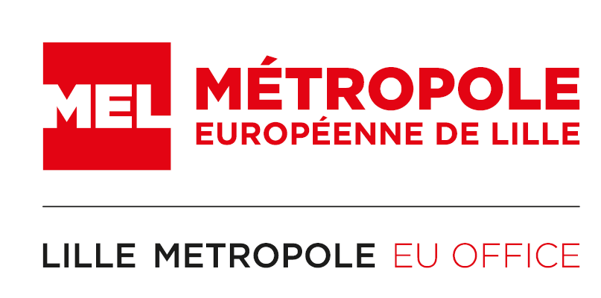
More than 300 participants met at the “Cité Internationale Universitaire” in Paris for the Borders Forum, organized by the “Mission Opérationnelle Transfrontalière” (MOT), an organisation created in 1997 by the French government to support and facilitate cross border cooperation. Strongly concerned by cross-border cooperation, Lille Metropole is a founding member of MOT, as well as of the Eurometropolis Lille-Kortrijk-Tournai.
At the start of the new European term, the “Borders Forum” provided an opportunity to lay the foundations for what could become a “Cross-Border Deal”, similar to the Green Deal on environmental issues. Meanwhile, a six-year-old draft regulation, renamed “BridgeEU”, should finally see the light of day in the next few months, with the aim of removing obstacles to cross-border trade that cost the European Union over 450 billion euros.
For the European Commission, removing 20% of these obstacles would be enough to gain 2% of GDP and create a million jobs. The proposed new legal instrument would, in the Commission's view, resolve a third of these cases.
The round-table discussions of the Borders Forum featured high-level speakers on the following questions: how can we restore confidence in order to develop European and cross-border citizenship and move towards a “cross-border people” in 2050? What “sovereignty” should be shared across borders? What kind of solidarity is required between cross-border territories, and how can we think differently about public policies?
Then, on December 3rd, participants split up into ten thematic workshops to discuss concrete proposals. The aim: to submit to national and European decision-makers a “cross-border deal” to take better account of cross-border living areas in public policies, resolve the “blockages” at borders that affect the daily lives of almost 30% of Europe's population, and restore confidence in Europe! The results were presented in a concluding sequence to representatives of national and European institutions.
Lille metropole led the workshop entitled «Public services for cross-border citizens?» together with “le Departement du Nord” and Eurometropolis Lille-Kortrijk-Tournai.
The workshop objectives focused on the following 3 points:
- Share existing or emerging initiatives,
- Share the needs expressed by citizens,
- Work together to find solutions and resources for citizens, taking into account the specific features of each cross-border living area along the European borders.
The context of the Franco-Belgian border situation, particularly with regard to services linked to cross-border employment, was set out through presentations from “Département du Nord”, Eurometropolis Lille-Kortrijk-Tournai, Maison de l’Emploi (Job Center) Lys, Tourcoing (MELT) and representatives of the French state.
The discussions were enriched by presentations from three other cross-border territories: the Oresund region on the Danish-Swedish border, the Trinational Upper Rhine region on the French, German and Swiss borders, and the Euroregion Nouvele Aquitaine - Navarre – Euskadi.
The five main outcomes of the workshop are the following:
- Enhancing local skills and expertise. Expertise exists, but it needs to evolve by developing context-specific training courses for public service operators.
- Strengthen mutual knowledge and articulation between public service operators, between counterparts on both sides of the border, by bringing closer operators and administrative comprehension
- Guarantee legibility and clarity for the user. Identify totems, visible counters, cross-border services.
- Recognize the status of “cross-border citizen" and create an enforceable European right to information on the issues raised by a cross-border life course.
- Guarantee the “right to stay” for cross-border citizens: national and European support is needed beyond local initiatives, to overcome regulatory obstacles and guarantee universal cross-border public services accessible to every border.
Find out more about the results of the Borders Forum, you can check out the Borders Forum website and the article about the event on the website of the MOT.

